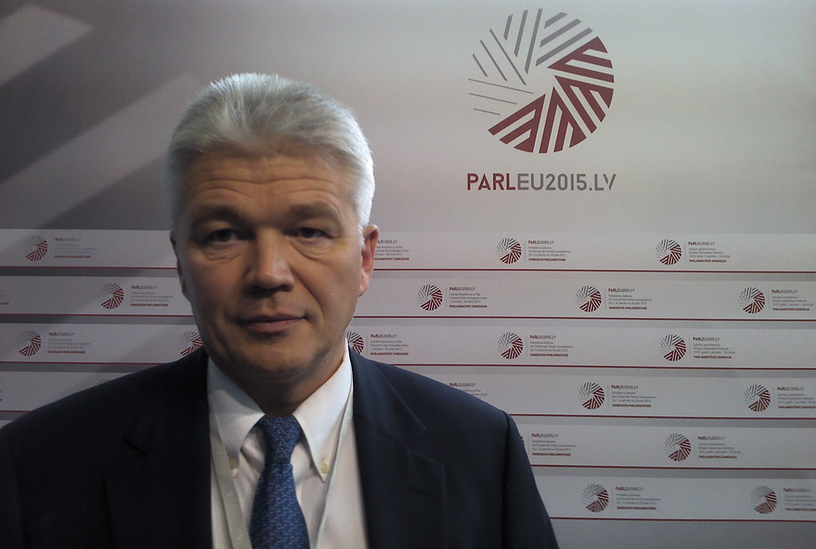Committee members queried the chief of the newly established center for setting the alliance’s information strategy about what measures can be taken to respond to the disseminated propaganda of the Islamic State and Russia’s current regime under Putin.
Kārkliņš answered that “we are in a situation where there are no fast recipes”, but in order to respond it is essential to understand what methods are being used in disseminating propaganda against you.
“For instance people who’ve grown up on the social media use them completely differently and their perceptions and reactions are completely different. For us to understand this we have to research, analyze and explain to those who have to make policy or take operative action,” he explained.
Only then can one think of mid-term responses, for instance the center’s recent recommendations to foresee investments in developing media literacy programs to deal with the overwhelming rush of information.
“Twenty-five years ago we stood under a shower of information, moreover ours was rather rusty, while the western people stood under a well-functioning shower. Today we stand under a Niagara Falls of information, and Niagara has immense power.
Many people who felt comfortable under that shower are now completely disoriented and can’t understand what’s going on amidst this huge constant press of information.
How to do that? Probably to start with kindergarten and primary school, because there’s no reason to expect this flow to slow down – it will only grow,” compared Kārkliņš.
He said banning channels that rebroadcast controversial news or downright disinformation won’t achieve the desired results. This, he cited, was proven last year when the National Electronic Mass Media Council’s recommended three-month rebroadcasting ban on Rossiya RTR only helped boost the channel’s ratings in its absence.
“It’s easier said than done to think about what your story is and design messages so that each of your target audiences gets it,” he added.
The STRATCOMCOE is currently working on altogether 41 separate projects, he said. It is conducting a survey on public opinion about the nature and possibility of hybrid warfare and the role that social media could play, preliminary findings from which will be released this August.
In June the center plans to publish results of a study of ISIS terrorist information campaigns targeted to affect public opinion in allied member state societies.





























